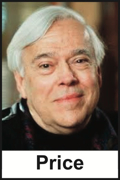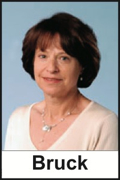Rascals case in brief
In the beginning, in 1989, more than 90 children at the Little Rascals Day Care Center in Edenton, North Carolina, accused a total of 20 adults with 429 instances of sexual abuse over a three-year period. It may have all begun with one parent’s complaint about punishment given her child.
Among the alleged perpetrators: the sheriff and mayor. But prosecutors would charge only Robin Byrum, Darlene Harris, Elizabeth “Betsy” Kelly, Robert “Bob” Kelly, Willard Scott Privott, Shelley Stone and Dawn Wilson – the Edenton 7.
Along with sodomy and beatings, allegations included a baby killed with a handgun, a child being hung upside down from a tree and being set on fire and countless other fantastic incidents involving spaceships, hot air balloons, pirate ships and trained sharks.
By the time prosecutors dropped the last charges in 1997, Little Rascals had become North Carolina’s longest and most costly criminal trial. Prosecutors kept defendants jailed in hopes at least one would turn against their supposed co-conspirators. Remarkably, none did. Another shameful record: Five defendants had to wait longer to face their accusers in court than anyone else in North Carolina history.
Between 1991 and 1997, Ofra Bikel produced three extraordinary episodes on the Little Rascals case for the PBS series “Frontline.” Although “Innocence Lost” did not deter prosecutors, it exposed their tactics and fostered nationwide skepticism and dismay.
With each passing year, the absurdity of the Little Rascals charges has become more obvious. But no admission of error has ever come from prosecutors, police, interviewers or parents. This site is devoted to the issues raised by this case.
On Facebook
Click for earlier Facebook posts archived on this site
Click to go to
Today’s random selection from the Little Rascals Day Care archives….
Click for earlier Facebook posts archived on this site
Click to go to
Today’s random selection from the Little Rascals Day Care archives….
‘The right man’ was the wrong man? No way!
 March 19, 2012
March 19, 2012
In “The Folly of Fools: The Logic of Deceit and Self-Deception in Human Life” (2011), Robert Trivers briefly addresses the causes and costs of the ritual abuse mania.
I asked Trivers, professor of anthropology and biological sciences at Rutgers University, about the role played by prosecutors in such cases:
“Prosecutors are notoriously vulnerable to tunnel vision – i.e., once a suspect has been identified, others disappear from sight; they also need to justify themselves in retrospect.
“I was told by (Innocence Project cofounder Peter J.) Neufeld that even after incontrovertible DNA evidence, 75 percent of the original detectives who came up with (and helped convict) the wrong person still say they believe they got ‘the right man.’ ”
The prosecution’s failures
Oct. 28, 2011
“If the defendants were guilty, the prosecution failed.
“If the defendants were innocent, the prosecution failed.
“The prosecution failed at everything but taking years from people’s lives, ruining their reputations, breaking up their marriages, dividing the people of a small town, wasting more than $1 million of the taxpayers’ money and smearing North Carolina’s reputation.”
– Editorial in the Wilmington Star-News, September 27, 1999
‘Overwhelming power’ in the worst possible hands
Dec. 23, 2011
 “Many appalling results of the recovered-memory movement of the 1970s and ’80s arose from … unexamined views of memory – occurrences like the false accusations of employees of children’s care centers… Such fantasies have often been encouraged as reliable memories by doctrinaire therapists and have sometimes resulted in prison sentences and ruined lives for innocent fathers, mothers, kin, teachers and devoted caretakers.
“Many appalling results of the recovered-memory movement of the 1970s and ’80s arose from … unexamined views of memory – occurrences like the false accusations of employees of children’s care centers… Such fantasies have often been encouraged as reliable memories by doctrinaire therapists and have sometimes resulted in prison sentences and ruined lives for innocent fathers, mothers, kin, teachers and devoted caretakers.
“The documentary films made by Ofra Bikel … are meticulous and frightening accounts of such fantasies and their overwhelming power in the hands of the cruelest, most self-deluded and most easily panicked among us.”
– From “Ardent Spirits” by the late Reynolds Price (2009)
Children don’t remember, but are sure abuse happened
 May 25, 2012
May 25, 2012
“Maggie Bruck, co-author of ‘Jeopardy in the Courtroom: A Scientific Analysis of Children’s Testimony’ and a professor of psychiatry at Johns Hopkins University, says no long-term psychological studies exist that track groups of children involved in alleged sex-abuse rings, in part because of confidentiality issues.
“But Bruck has studied follow-up interviews of children involved in cases similar to the notorious McMartin preschool trial. Some kids continue to believe they were abused. Bruck suspects it’s because their families or therapists have reinforced the stories of abuse. ‘The children say they don’t remember the salient, allegedly terrifying details,’ she told me. ‘But they are sure it happened.’ ”
– From “Who Was Abused?” by Maggie Jones in the New York Times (Sept. 19, 2004)
Might the Little Rascals children be among the subjects of that follow-up research? Sorry, Dr. Bruck says predictably – “Confidential information.”




